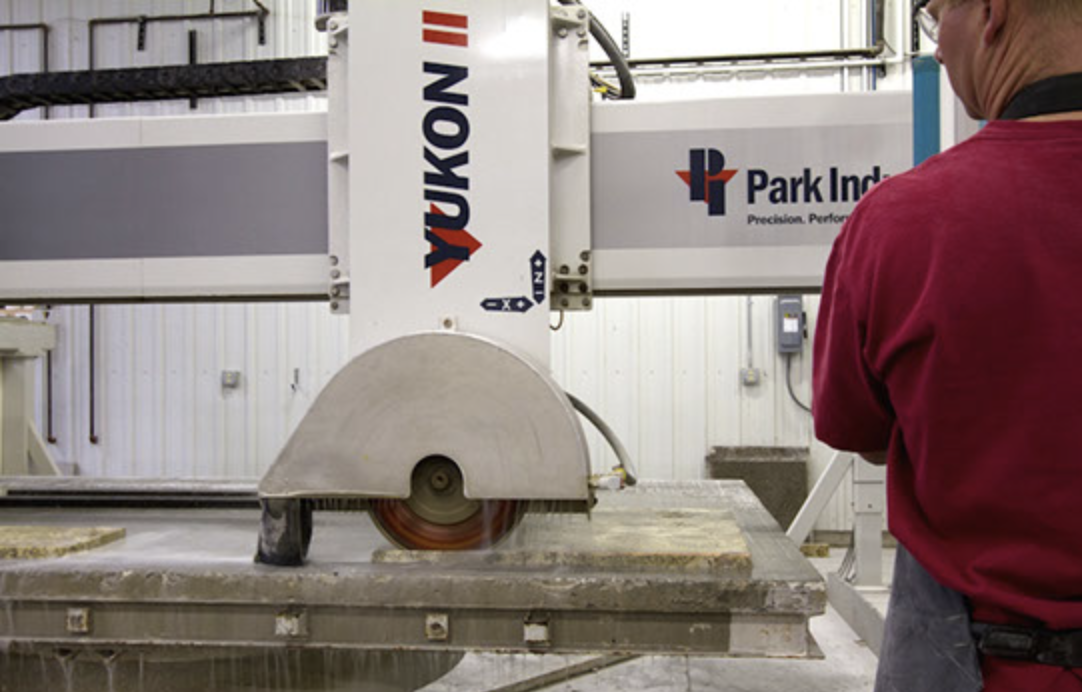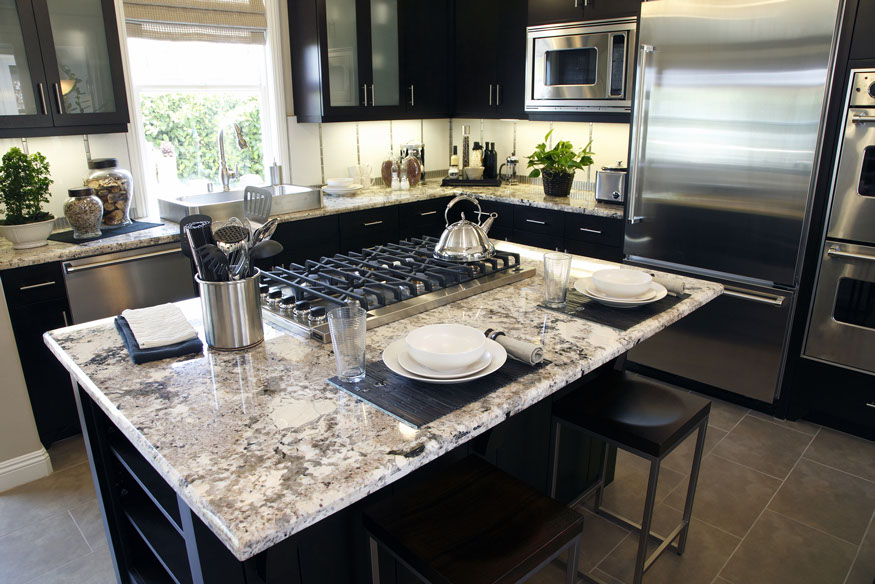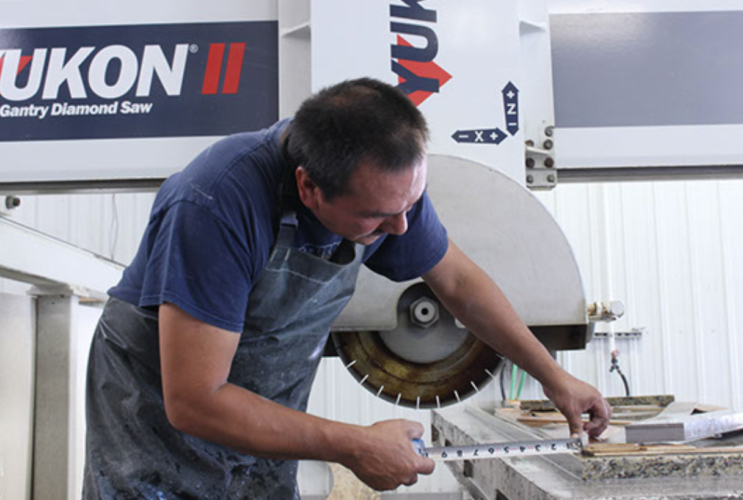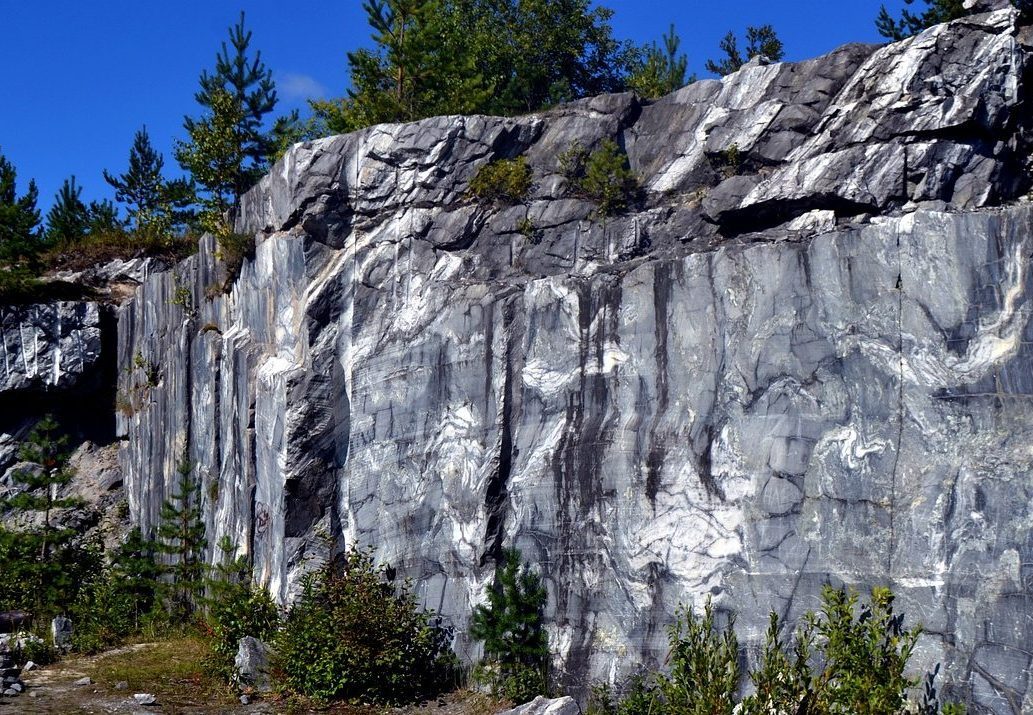Welcome To Stone Encounters
We are passionate about crafting beautiful work in Appleton Wisconsin.
We produced this video to share our love of stone and our craft with you.
We hope that it leaves you with inspiration for your next project.
We want to earn your business and help you build and design the project of your dreams.
LEARN ABOUT GRANITE, MARBLE AND QUARTZ.
What is Marble?
Marble is metamorphosed sedimentary carbonate rock. Limestone or dolomite (carbonate rocks) are the typical base minerals. The recrystallization of the carbonate minerals result in Marble.
Often, the original structure of the carbonate rocks are modified during the metamorphism to render the marble unrecognizable from its original state. The swirling and veins in marble often result from mineral impurities which are in layers in the original limestone or dolomite.
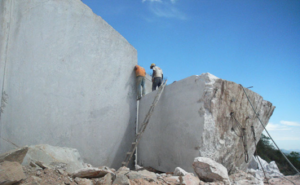
What is granite?
Granite is normally a coarse grained igneous rock that is comprised of quartz, feldspars and micas. The quartz will be be the lighter color minerals with the remaining consisting of feldspars and muscovite. The dark minerals are hornblende or biotite. Granite is by far the most common rock found in the outer crust of the planet. Granite is formed by the cooling of magma in the ground. Granite is an outstanding material for countertops.

What is Quartz?
As the name implies it is a countertop product that is made of quartz and resins. Before granite slabs were resined Engineered Stone had one major advantage over its natural counterpart, it was difficult to stain. Now with the advent of resined slabs that advantage is gone. The primary difference is the appearance. Man made products come in a large range of consistent colors which do not occur naturally in nature.
You often see engineered stone being used in commercial setting or contemporary ones. You get to decide which look is best for your project.
Do you remove countertops?
Yes we can remove and dispose of your old counters. We use the latest technology in template system. This technology allows us to get the measurements of your kitchen counter tops with out removing the old counter tops. That way our customer will have the convenience of not being with out a kitchen during the fabrication process.
Do you have remnants?
Yes, we have one of the largest inventory of granite remnants around! We also have remnants and half slabs of engineered stone, marble, limestone, onyx and of course granite and many other types of stone remnants.
Stop by and see if we have the stone you want!
Should I seal my countertops?
Prevent Stains
Sealing your granite countertops will cause liquids to bead on the surface instead of absorbing into the stone, which can lead to stains. This is especially beneficial if you have light-colored granite countertops.
Reduce Etching
Maintaining granite countertops by sealing them will reduce damage caused by acidic foods and cleaning agents. Etching happens when acidic foods, such as lemon juice, is spilled on the counter and isn’t cleaned up immediately.
Clean Faster
Sealing your granite countertops will help you clean them much faster. Fingerprints and other dirt will be easily wiped up. Since liquids will bead on top and won’t be absorbed into the stone, it will be much easier to clean after cooking without any scrubbing.
Less Chemicals
Since your granite countertops will be easier to clean with a sealer, you won’t need to use harsh cleaning agents, which is better for the environment and for your indoor air quality.
Preserve the Natural Beauty of Granite
Maintaining granite countertops with a coat of sealant will help keep your granite from looking dull and lifeless. A sealer will prevent water, oils, and other contaminants from leaving behind mineral deposits that can make granite look cloudy and dingy.
Does the price of the stone effect the “quality” of it?
Often people make the mistake of assuming that if it is more expensive then the slab is better quality. Often in our industry stone cost has more to do with availability, competitive quarries…in other words; Does color come from multiple locations creating a price competitive market? So the simple answer is: No….the cost has nothing to do with the structural quality. The more complex answer is Yes.
For example; Santa Cecilia Granite is available from many sources so the base price of the granite is fairly low. In that group there: First Choice Material, which is has nicest even looking coloring and movement. Then there is Second Choice Material: This will look close to first choice but have minor color variations which make it slightly less expensive then the first choice. The final classification is Commercial Grade Material: This class of stone will have things that make it look less then desirable, spots/eggs of color that do not match the “Norm” for that material. This is the lowest cost.
These ratings are subjective and have to do with what the granite looks like. At the end of the day all three classifications will perform perfectly for granite countertops in your kitchen, but the “quality” is based on the subjective appearance.

